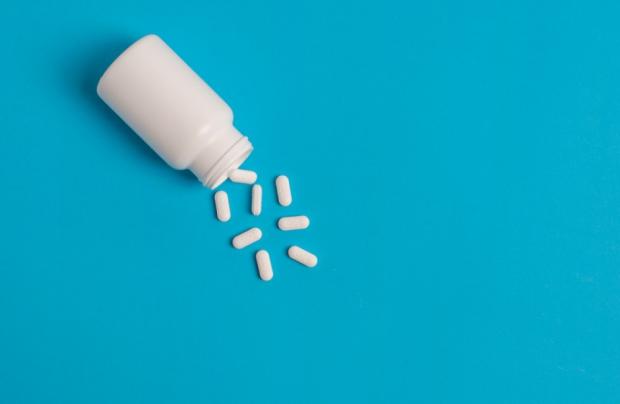An international group of researchers, including several with financial ties to manufacturers of antidepressants, explores possible explanations for why long-term users of antidepressants become chronically depressed.
The lead author on the paper is Michele Fornaroa at the University School of Medicine Federico II, Naples, Italy. The article is published online ahead of print in the journal Pharmacological Research. Fornaroa’s conservative estimate, based on previous literature, is that up to a third of people taking antidepressants find them ineffective or find that they increase depressive symptoms.
 Mad in America has previously reported on studies that have found that antidepressant efficacy is overestimated, that antidepressant use is associated with worse outcomes, regardless of initial depression severity, and that severe withdrawal symptoms are common after discontinuation—particularly after long-term use.
Mad in America has previously reported on studies that have found that antidepressant efficacy is overestimated, that antidepressant use is associated with worse outcomes, regardless of initial depression severity, and that severe withdrawal symptoms are common after discontinuation—particularly after long-term use.
Emotional Blunting
Consistent with this research, Fornaroa and the others write that “a potential detrimental manifestation of long-term treatment with antidepressants may be the emotional blunting phenomenon or otherwise ‘depressogenic’ phenomena.”
“A high proportion of patients receiving SSRIs may exhibit a clinical phenomenon referred to as emotional blunting. Those patients often describe their emotions as being ‘damped-down’ or ‘toned-down,’ while some patients refer to a feeling of being in ‘limbo’ and just ‘not caring’ about issues that were they once cared about. Such adverse affective manifestations may persist even after the symptoms of depression have improved and may ensue in patients of all ages.”
In emotional blunting, people lose the ability to experience their emotions and to self-regulate their emotional state. Thus, in “a high proportion of patients,” the inability to experience pleasure, joy, and passion may be the cost of numbing one’s pain.
Other Tolerance Effects
When antidepressants stop working, the common practice of increasing the dose might worsen tolerance effects and lead to worsening depression in the long term. The authors write that this “may exacerbate tolerance and induce chronicity and refractoriness in a substantial subset of patients with MDD.” The authors also note the prevalence of sensitization, in which antidepressant users become more susceptible to side effects over time.
What Causes Antidepressants to Stop Working?
The authors focus on the biological processes that might cause antidepressants to stop working or worsen depression. However, they also provide some other explanations for why antidepressants stop working. According to Fornaroa and the others:
- Antidepressant medication may lead to manic episodes in a subset of patients, leading to more extreme diagnoses, such as bipolar disorder.
- “Stressors and life events can intrude” which can lead to the medication no longer working.
- “Comorbidities such as substance use disorder,” impair effectiveness, indicating that if people find it necessary to self-medicate with other substances, this might diminish the effectiveness of antidepressants.
- Many people who improve on antidepressants are experiencing the placebo effect, which wears off over time and might mistakenly be considered developing a “tolerance” to the antidepressant.
Fornaroa explains: “There is a narrow gap between antidepressants and placebo in acute treatment trials, implying that many people who improve while taking antidepressants are placebo responders. In these people, perceived loss of efficacy may be a loss of the placebo effect.”
The Oppositional Model
Fornaroa and the other authors provide several biological theories of how antidepressants can induce tolerance or otherwise worsen symptoms. They are generally based on the “oppositional model,” which suggests that the brain works in constant adaptation toward equilibrium. That is, as a drug affects neurotransmitter levels, the brain adapts back toward its previous levels.
Patients may be told a now-debunked story of how antidepressants work: someone with depression does not have enough serotonin, and the drugs provide that. However, this does not explain why the drug takes several weeks to begin to “work” for depression. A theory based on the oppositional model is that it is actually reduced serotonin that causes the antidepressant effect.
It is thought that SSRIs can reduce serotonin because when the drug causes increased serotonin levels, the brain adapts by releasing less and less serotonin. Then the brain over-adapts, so that far less serotonin is released than before the medication use. This can also explain the drug-induced adverse effects, as side effects of the brain’s over-adaptation to the drug, reducing serotonin below what is necessary.
Biological Explanations for Tolerance Effects
Here are some of the specific biological explanations for these effects, as written by Fornaroa:
- Pharmacokinetic: The enzyme known as cytochrome P450 is responsible for breaking down the active ingredients in antidepressants. If it adapts to the presence of the drug and becomes more effective, it can reduce the amount of active drug in the system. This can also be affected by smoking and by other drug interactions.
- Pharmacodynamic: The receptors for the neurotransmitters adapt to the presence of the drug over time, and thus the effect of the drug is lessened. For instance, Fornaroa writes that antidepressant drugs cause receptors to enter a feedback loop, “ultimately leading to an impaired balance and function of serotonin receptors.”
- HPA theory: The drugs over-activate the hypothalamic–pituitary–adrenal axis (HPA), which may “unfavorably affect serotonin receptor functioning.”
- “Long-term antidepressant actions on the HPA axis may also increase sensitization of stressors, which may affect the likelihood of recurrences.” That is, taking an antidepressant makes a person more susceptible to environmental and psychological stress which may lead to worsening depression symptoms.
Problems with the Research
The authors mention that the published research on antidepressant medications suffers from several issues when it comes to the depression-inducing effects of the drugs. They find it concerning that researchers cannot agree on terminology, and have vague criteria for what constitutes these effects.
“There are no univocal operational definitions for ‘tachyphylaxis’ or other tolerance-related phenomena. Hence, concepts such as ‘pop-up/out’ (response), ‘wear-off’ (phenomena), ‘depressive recurrence during maintenance antidepressant treatment’ (DRAT), ‘breakthrough’ (depression), and ‘loss of efficacy’ have been used interchangeably and inconsistently in the literature .”
All of these terms are used to indicate that antidepressants have either stopped working or have worsened the symptoms they are intended to treat. Overall, the research on tolerance, sensitization, and drug-induced tardive dysphoria is studied infrequently and poorly, but there is evidence that it affects a large proportion of people who take antidepressants.
**
The following is the disclosure statement for the authors of this paper:
EV has received grants and served as a consultant, advisor, or CME speaker for the following entities: AB-Biotics, Allergan, AstraZeneca, Bristol-Myers-Squibb, Ferrer, Forest Research Institute, Gedeon Richter, Glaxo-Smith-Kline, Janssen, Lundbeck, Otsuka, Pfizer, Roche, SanofiAventis, Servier, Shire, Sunovion, Takeda, Telefonica, the Brain and Behaviour Foundation, the Spanish Ministry of Science and Innovation (Centro de Investigación Biomédica en Red de Salud Mental), the Seventh European Framework Programme (European Network of Bipolar Research Expert Centres), and the Stanley Medical Research Institute. MB is supported by an NHMRC Senior Principal Research Fellowship (APP1059660) and has received Grant/Research Support from the NIH, Cooperative Research Centre, Simons Autism Foundation, Cancer Council of Victoria, Stanley Medical Research Foundation, MBF, NHMRC, Beyond Blue, Rotary Health, Meat and Livestock Board, Astra Zeneca, Woolworths, Avant and the Harry Windsor Foundation, book royalties from Oxford University Press, Cambridge University Press, Springer Nature and Allen and Unwin, has been a speaker for Astra Zeneca, Lundbeck, Merck and Servier and served as a consultant to Allergan, Astra Zeneca, Bioadvantex, Bionomics, Collaborative Medicinal Development, Grunbiotics, Janssen Cilag, LivaNova, Lundbeck, Merck, Mylan, Otsuka and Servier. The other authors report no conflicts of interest. AdB has received research support from Janssen, Lundbeck, and Otsuka and lecture honoraria for unrestricted CME talks from Chiesi, Lundbeck, Roche, Sunovion, and Takeda; he has served on advisory boards for Eli Lilly, Jansen, Lundbeck, Otsuka, Roche, and Takeda.
****
Fornaroa, M., Anastasiab, A., Novelloa, S., Fuscoa, A., Parianoa, R., De Berardisc, D. . . . Carvalhon, A. F. (2018). The emergence of loss of efficacy during antidepressant drug treatment for major depressive disorder: An integrative review of evidence, mechanisms, and clinical implications. Pharmacological Research. https://doi.org/10.1016/j.phrs.2018.10.025 (Link)















It seems like managed retreat to me. When its obvious to all that we’ve been sold a pup, they start to talking about “possible problems with a subset of patients”, or emerging treatment resistance or rebound that jolly gosh they had never thought of.
This is their cerebral way of describing how you have just realised the treatment was useless to begin with:
“There is a narrow gap between antidepressants and placebo in acute treatment trials, implying that many people who improve while taking antidepressants are placebo responders. In these people, perceived loss of efficacy may be a loss of the placebo effect.”
Report comment
Also not mentioned is the likelihood of multiple possible origins for depression, as depression itself is a syndrome instead of a diagnosis, and as such, can have any one or more of a number of multiple origins.
Report comment
Yeah, I love that. It’s really a fancy way of saying, “Most of these people aren’t getting any benefit at all, but we can’t really admit that fact.”
Report comment
There’s a lot of blaming brains, or psycho/social factors, rather than confession that the antidepressants are ineffective, and harmful, neurotoxic drugs.
Report comment
They weren’t “working” to begin with.
Report comment
Those gosh darn treatment resistant consumers!
Double–no triple the dose. Make it 3 drugs instead of one. Tell their family and friends they’re incompetent, dangerous “bipolars” or “schizos.”
If they persist in unhappiness, fry their brains out. That’ll learn ’em!
Report comment
To stop working implies that they worked in the first place and we all know that they do not balance brain chemicals nor do they deal with the “depression” people are dealing with. In fact, the damned things can cause you to become suicidal or homicidal, they make you into a zombie separated from feelings and emotions, and you go into withdrawal when you try to quit taking them. The emperor is naked!!!
Report comment
The phrase “stop working” is very misleading and it undermines what is a very important posting here at MIA.
There is still NO definitive evidence that SSRI’s “work.”
AND when the placebo effect soon wears off and reality continues to exert itself on people’s lives (unresolved conflict with the environment), they may tend to become even MORE depressed because there was an expectation (promised by the Medical Model) that things would get better.
AND then they may feel even WORSE and HOPELESS about themselves and their so-called “genetic defects” (implied by the “chemical imbalance” theory), thus overall intensifying depression and despair.
This may also be an additional reason why many people end up far worse after taking SSRI’s.
Richard
Report comment
The authors obviously, see the statement at the end, have a great deal of ties to the drug industry, from which one might surmise their attitude toward the subject. If these drugs are faulty, less active with time, it’s a matter for drug research and development. We just haven’t made the right chemical oil well strike yet. Our drugs aren’t quite as miraculous as we’d have them be, and so we’ve got some more work to do in developing the drug that does it all. Get all the kinks out, and we will have found one heck of a happy pill. A misguided pursuit from my perspective (re: opiates as pain killers).
Why do antidepressants stop working? Why do placebos stop working? Take a wild guess. Maybe it’s because they never worked in the first place.
Report comment
“Researchers Ask, ‘Why Do Antidepressants Stop Working?’”
I’m not going to even bother to read this nonsense. Let me just point out that there is no such thing as an “antidepressant.” It is a misleading misnomer for dangerous, brain-destroying drugs. In fact, these drugs do exactly what they were intended to do, namely, destroy the brains of the innocent while fooling them into believing that they are taking “medicine” for non-existent “mental illness.”
Report comment
You mean “antidepressants” work?
Report comment
Can I share a Facebook video here? I just saw this and at first thought, oh how funny! Then I realized it’s actually what is happening in psychiatry in a comedy sketch. Thought some of you might enjoy this well-put parody on antidepressants.
https://m.facebook.com/story.php?story_fbid=10156118868352606&id=189882407605
I was a subset of patients that got bipolar. Super pleasant side effect. /s
Report comment
Me too. Anafranil kept me awake for 21 days straight, driving me into a psychotic mania. The shrinks NEVER let me go off them after that. Told me it was my fault for being SMI and gave me more drugs than ever. (Finally I fled the crazy makers with their drugs that were making nuts all along.)
But admitting this publicly would be “pill shaming.” Psychiatry would rather shame its victims.
Report comment
Yep. I never smiled “enough” as a kid. Couldn’t be the Perfect Preacher’s Daughter. Smiling non-stop, fastidious, perfectly organized, obedient, no sense of humor, unimaginative, good grades but not too smart. (Brains aren’t considered girly after puberty.)
After going on my cocktail I could barely smile at all. Then got scolded for my “flattened affect.”
Report comment
Another errant comment in the article is that the “numbing effect” is an adverse effect. It would appear from my reading of the research and my personal discussions with users that far from being an “adverse effect,” the numbing IS the therapeutic effect, such as it is. For some people, being numbed out feels like an improvement. For others, it feels horrible. But it’s not an accidental “side effect” – it IS the therapeutic effect that is offered. People should know that.
Report comment
Steve
Excellent point. The “numbing effect” is also very connected to the misleading language related to the use of the phrase, “stopped working.”
Richard
Report comment
I never had a placebo effect of antidepressants. I had a hypomanic response which is extremely dangerous because it combined the underlying depression with the disinhibition and agitation that comes with low level mania, which is basically a recipe for suicide, which is exactly what I attempted twice within weeks of my Effexor prescription in 2002. The subsequent loss of my child due to my inability to care for her because of my diagnosis of SMI and being drugged into oblivion aught to be a recipe for a major lawsuit. The fact that Lyme Disease was clearly underlying the whole time – I feel like I’ve been robbed of everything that ever mattered to me on false pretenses so grandiose and outrageous and contrived that it beggers belief. Who the hell benefitted from this? Not me. Not my family. Not my kids. But someone somewhere took the profits gleefully to the bank while the American taxpayer was defrauded into paying for disability payments and medical care so inappropriately thrown at me as some sort of sick consolation prize. I literally want to scream when I hear people saying we just need parity in mental health care. F**k psychiatry. That’s my story and I’m sticking to it.
Report comment
I also tried to kill myself after being put on huge doses of Effexor. Effexor is the devil’s tic tacs. Glad that we both survived that damned stuff.
Report comment
Effexor is a bear to come off too.
Report comment
Thanks, Steven. Effexor wasn’t the worst drug I took – Latuda took the prize for that one – but it’s unbelievably nasty stuff nonetheless and made me feel totally disconnected from the rest of planet earth.
I’m glad you survived too.
Report comment
A lot of people don’t know this but pregnant women who took Effexor often birth babies who go into respiratory arrest soon after being born. In hospitals that are well informed they have a team of respiratory therapists waiting along with all the other staff who help with birthing. But I’m sure that the doctors who put pregnant women on this stuff have no idea about the problems that they’re causing for not only the woman but for her child too.
Report comment
The fundamental assumption that depression is a brain state independent of our relationship to the world we live in is problematic.
If one is in a position or enduring circumstance in which we cannot see an optimistic future for ourselves, then becoming depressed about that long term picture of the future seems likely. It follows that it can be changed by acting (to induce the experience of influence or control) to change one’s view of available opportunities in the world. If action achieves good rewards (both social and self actualizing) then the brain will be transactionally rewarded, changing the brain state in response to our view of the world.
I studied neuro linguistic programming. A simple technique for changing how we relate to the world we live in is to respond by asking ourselves outcome based questions – “What outcome am i trying to achieve? What do I need to have in place, what actions do I need to take to achieve it?”. Simply by asking ourselves these kinds of questions we engage the brain in finding ways to achieve desirable outcomes and in recognizing progress towards them – engaging a proper reward progression.
Any drug for which the “therapeutic effect” is to dull emotions (neuroleptics have the same problem), will systematically dull our view of the world and our ability to enjoy it.
Emotions are a product of information processing. We can easily learn simple techniques that give us greater control of our “flow”, which shapes our relationship to the world we live in and the story we are creating.
No drugs required.
Report comment
It makes sense in the ‘real world’, that any substance that makes a person feel better, will eventually make them feel worse.
It’s the same for the alcoholic, eventually the alcohol ‘stops working’.
Report comment
I think I was unusually sensitive to SSRI drugs. Had an extreme reaction to Anafranil. High as a kite and sleepless for three weeks. The whole time I took it.
My “high” from Zoloft was milder and zapped me out of my depression. The depression was caused by getting kicked out of college, rejected by friends, having all my hopes and dreams dashed at age 20 and annoying my family by my drug addled behavior.
Report comment